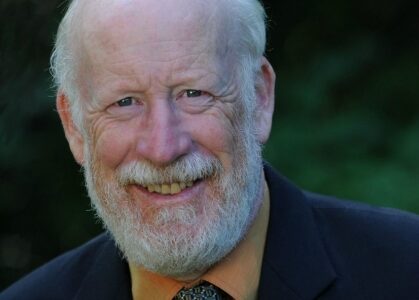(Not) holding the line: council deliberates on tax increase for 2016
A tax rise of over six per cent could hit Nelson taxpayers when the 2016 bill comes due, as city council grapples with the initial numbers in its deliberations on the next budget.
Although the budget process will not be complete until late winter, city council is currently embroiled in dismantling all aspects of the budget, examining the costs involved, and putting it back together for a February delivery to Nelsonites.
The budget deliberations have been in the public realm for dissection and discussion since the first meeting Nov. 12, and all areas of the city’s $40-million budget are open for public comment.
And there is plenty to comment on. Council has expected at least an annual two per cent increase to taxes for the next few years as the cost of “doing business,” said Mayor Deb Kozak, but the rise this year could exceed that.
She noted the city is currently in negotiations with the union representing the city’s firemen, and negotiations on a new city police officer contract will follow next year.
If the city’s police force is granted their $310,000 pending request by the province, it could bump city property tax levees by almost four per cent alone, not including the new contracts for fire and police services.
Kozak said she intends to get in contact with other small city mayors on the rising costs of protective services in a small municipal budget economy.
“We need to have a conversation about these huge contracts, and they always seem to go to arbitration. Is the sky the limit? I’m trying to get some traction,” she said.
The only lever local government has is to decrease services, said Kozak.
“So if costs get too high, where do you cut?” she asked. “Where else in the community do we cut services?”
There’s no question the biggest single cost the city is facing this year is with staffing, said the city’s chief financial officer, Colin McClure. Contingencies are built into the budget to accommodate the agreements still on the table.
“With four collective agreements and an exempt group of employees there is the ongoing pressure of wage and benefit increases,” he said. “As we have valuable staff (we) want to compensate appropriately, but also try to control these costs as much as possible.”
McClure said the city has already had two utility budget meetings in November — on water, sewer and garbage — and he brought the bylaw change in rates for its first three readings at the Dec. 7 regular council meeting.
In utilities the city is moving up a capital request to create the ability to have water that can be drawn from the lake, filtered, and then entered into the water system in an emergency drought situation.
“Much like the city was finding itself this summer,” said McClure.
City staff recommended a three per cent increase in water rates for 2016, as well as a two per cent increase to sewer rates. The total increase could amount to a rise of around $24.30 per household in 2016.
The city’s number is only a percentage of the total tax bite Nelson property owners face, with the province and education also part of the bite. And all of those numbers are based on the housing costs BC Assessment determines for the city.
In all there are 10 meetings that are dedicated for the budget.
“We have a diverse and complex operational and capital needs, with many departments that municipalities of our size don’t usually have,” said McClure, including Nelson Hydro, Nelson Police Department, Nelson Fire Rescue and the Nelson and District Youth Centre.
Each year council and city staff work together to develop an annual budget, with input from the public.
Municipalities in British Columbia are required by legislation to have a balanced budget. This means that no debt can be incurred to fund the basic operating expenditures.
Debt can only be used to fund capital projects, such as buildings, road constructions, water, sewer and drainage works.
The budget outlines how the money that comes into the city should be spent to maintain and improve the City. As the City is limited by the amount of resources available, the budget helps in determining those objectives with the highest priority and which will produce the greatest positive impact in the community.
There are several budget meeting dates — open to the public — left on the agenda, leading up to an open house in mid February. Agendas for each meeting will be available online at 9 a.m. on the day preceding the meeting.
The next meeting — held in council chambers (unless indicated otherwise) — will be this Wednesday, Dec. 16, from 9 a.m. to 4 p.m.
The meetings begin again Jan. 12 (9 a.m. to 4 p.m.), with another on Jan. 14 (9 a.m. to 4 p.m.) and closing out the month with one on Jan. 26 (9 a.m. to 4 p.m.).
There will only be one regular budget meeting in February on Feb. 2 (9 a.m. to 4 p.m.), with a tentative additional meeting date of Feb. 4 starting at 4 p.m.
The budget open house will take place on Feb. 18 at the Nelson Public Library, or even the new chamber of commerce building in Railtown (details to follow).
People can view the city’s 2015 budget and financial reports on the publications and reports page on the city’s website.
The final 2016 presentation will be posted on the city website once it is available.
























